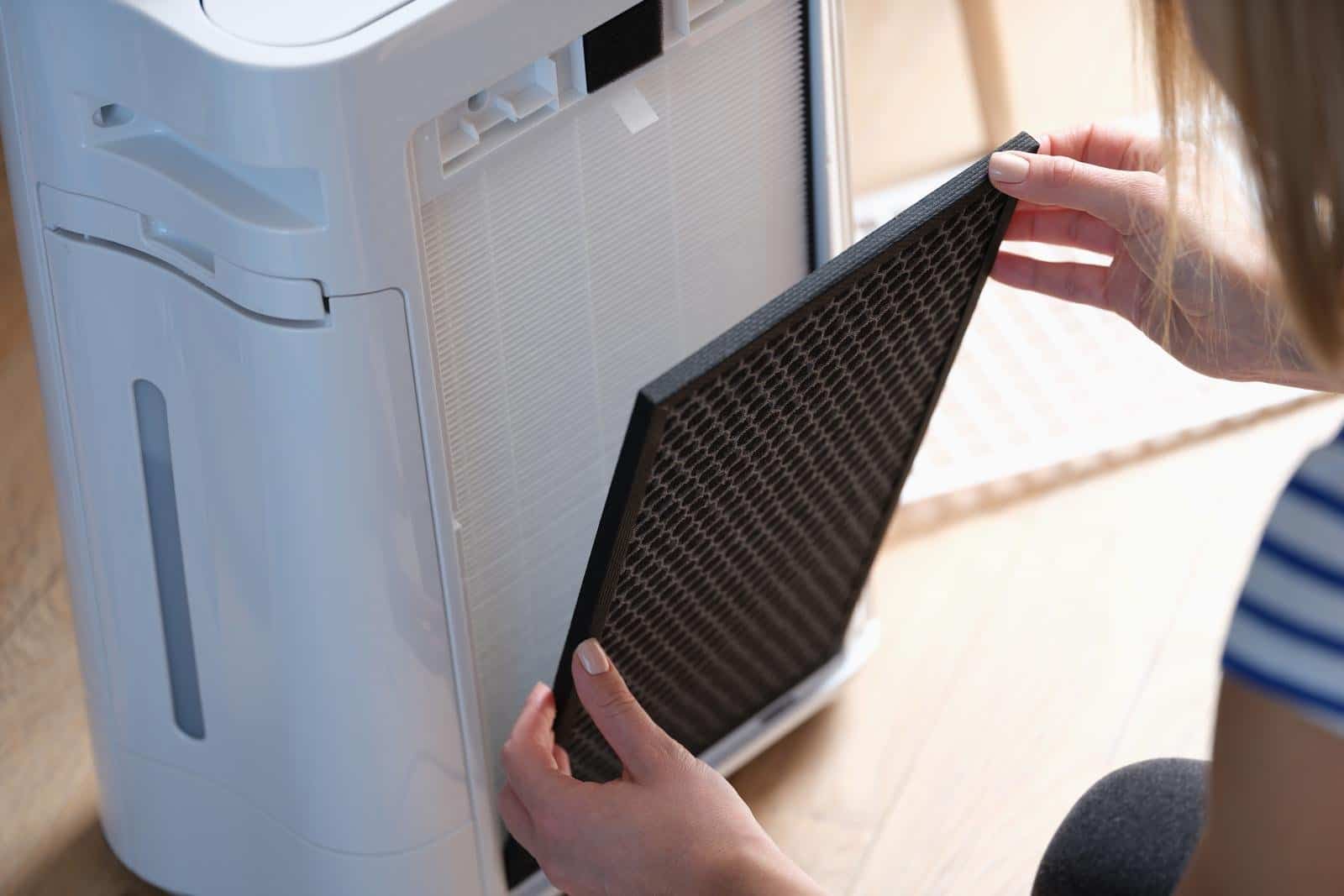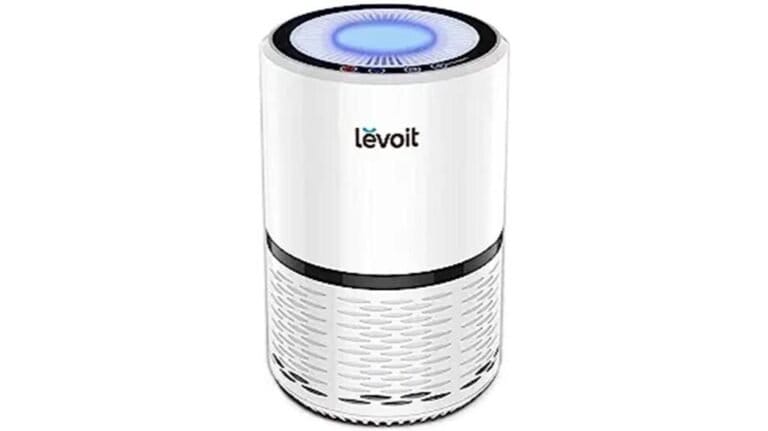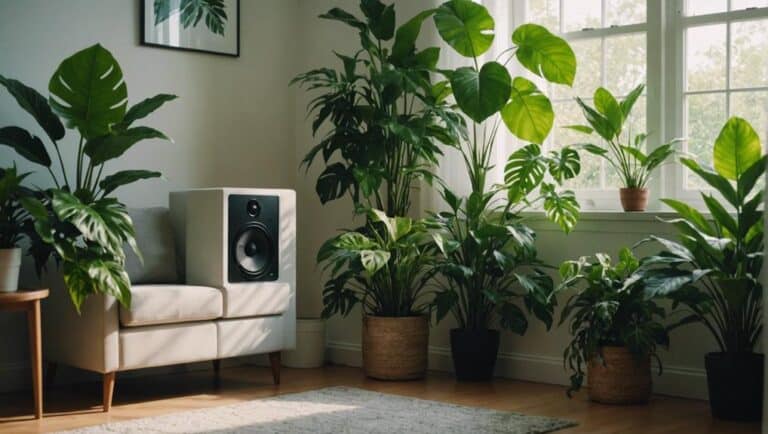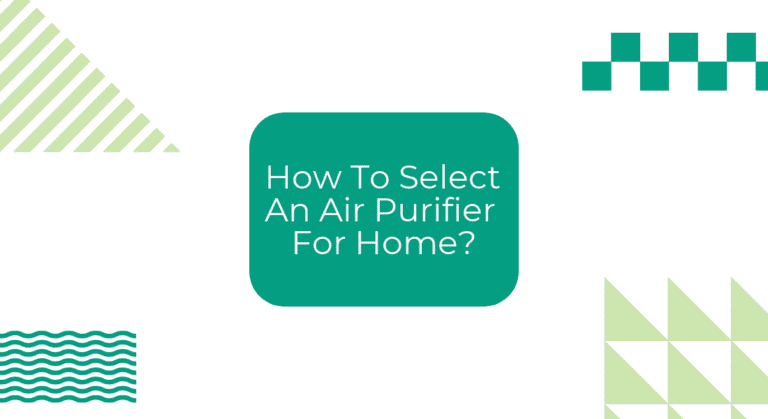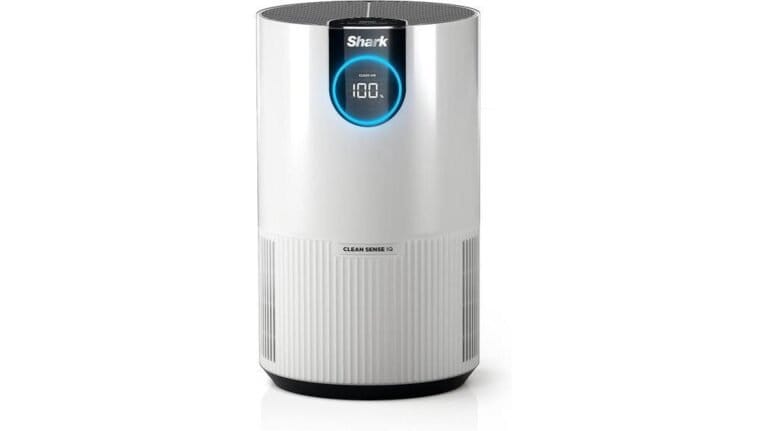Can You Get Sick from Not Changing Air Filter? Exploring the Health Risks of Neglecting Your HVAC System
When was the last time you changed your air filter? If you can’t remember, it might be time to take a closer look. Air filters play an important role in keeping the air in your home clean and healthy. A clogged air filter can not only cause your HVAC system to work less efficiently, but it can also have serious consequences for your health.
The air filter in your HVAC system is designed to trap dust, pollen, and other airborne particles that can worsen allergies and asthma symptoms. If the filter is not changed regularly, these particles can build up and circulate throughout your home, leading to poor indoor air quality. In addition to respiratory problems, a clogged air filter can also contribute to headaches, fatigue, and other health issues.
Key Takeaways
- Neglecting to change your air filter can have serious consequences for your health, including respiratory problems, headaches, and fatigue.
- Air filters play an important role in maintaining good indoor air quality and keeping your HVAC system working efficiently.
- Regular maintenance and cleaning of air filters is essential for ensuring that your home’s air is clean and healthy.
The Importance of Changing Air Filters
As responsible homeowners, we must understand the importance of changing air filters regularly. Air filters play a crucial role in maintaining the air quality in our homes. They help to trap pollutants, allergens, and other harmful particles that can cause respiratory problems, allergies, and other health issues.
When air filters are not changed regularly, they become clogged with dirt, dust, and other particles. This can make it difficult for air to flow freely through the HVAC system, leading to decreased efficiency and increased energy consumption. In addition, clogged air filters can lead to the buildup of harmful contaminants in our homes, which can negatively impact our health.
The Environmental Protection Agency (EPA) recommends changing air filters at least once every three months. However, some factors may require more frequent changes, such as pets, smoking, and allergies. It’s essential to check the air filter regularly and replace it when necessary to ensure optimal air quality and system performance.
Regular maintenance of air filters not only ensures clean and healthy air but also helps to prolong the life of the HVAC system. A dirty air filter can cause the system to work harder than it needs to, leading to increased wear and tear on the system and potentially costly repairs down the line.
In conclusion, changing air filters is a simple yet critical aspect of maintaining indoor air quality and HVAC system performance. By staying on top of air filter maintenance, we can ensure that our homes remain healthy, comfortable, and efficient.
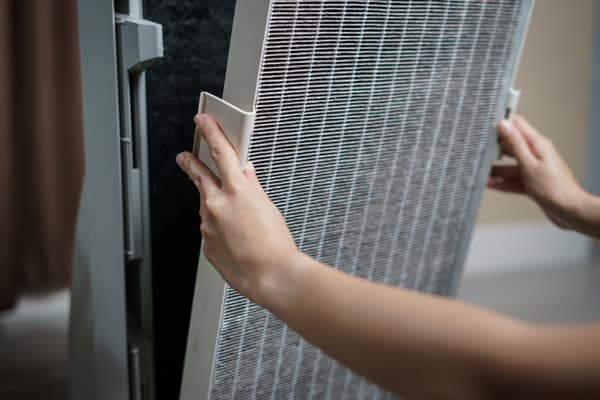
How a Clogged Air Filter Affects Your Health
When was the last time you changed your air filter? If it’s been a while, you might be putting your health at risk. A clogged air filter can have a significant impact on the air quality in your home, which can lead to a range of health issues. In this section, we’ll explore how a clogged air filter affects your health.
Allergies and Respiratory Issues
One of the most common health issues associated with a clogged air filter is allergies and respiratory issues. When your air filter is clogged, it can’t effectively remove allergens and other irritants from the air. This can lead to symptoms like coughing, sneezing, and congestion. If you have asthma or other respiratory issues, a clogged air filter can make your symptoms worse.
Long-term Health Effects
In addition to short-term symptoms like allergies and respiratory issues, a clogged air filter can also have long-term health effects. Over time, exposure to poor air quality can lead to more serious health issues like respiratory disease, heart disease, or cancer. This is because a clogged air filter allows harmful particles like pollen, dust, and bacteria to circulate in your home, which can be inhaled and cause damage to your respiratory system.
To avoid these long-term health effects, it’s important to change your air filter regularly. Most HVAC professionals recommend changing your air filter every three months, but if you have pets or live in an area with high levels of pollution, you may need to change it more frequently. By keeping your air filter clean, you can ensure that the air in your home is healthy and safe to breathe.
In conclusion, a clogged air filter can have a significant impact on your health. It can lead to short-term symptoms like allergies and respiratory issues, as well as more serious long-term health effects. By changing your air filter regularly, you can ensure that the air in your home is clean and healthy, which can help you avoid these health issues.
The Role of Air Filters in HVAC System
Air filters play a crucial role in maintaining the efficiency and performance of HVAC systems. They are responsible for trapping airborne particles, such as dust, pollen, and pet dander, that can negatively impact indoor air quality. In this section, we will discuss the importance of air filters in HVAC systems and how they help prevent system failure.
Efficiency and Performance
One of the primary functions of air filters is to maintain the proper airflow in an HVAC system. When a filter becomes clogged with airborne particles, it restricts the flow of air, which can cause the system to work harder to maintain the desired temperature. This can lead to decreased efficiency, increased energy bills, and even premature failure of the system.
Regularly changing air filters is essential to maintaining optimal performance. The frequency of filter changes depends on the type of filter and the level of pollutants in the air. A general rule of thumb is to change filters every 90 days, but it may need to be done more frequently in homes with pets or smokers.
Preventing System Failure
Air filters also play a critical role in preventing system failure. When a filter becomes clogged, it can cause the furnace to overheat, which can lead to system failure. Additionally, a dirty filter can cause the coils to freeze, which can cause the system to shut down entirely.
By regularly changing air filters, homeowners can prevent system failure and extend the life of their HVAC system. It is recommended to have the system inspected and serviced by a professional at least once a year to ensure optimal performance and prevent potential problems.
In summary, air filters are a crucial component of HVAC systems, and their proper maintenance is essential to maintaining optimal efficiency and preventing system failure. Regularly changing air filters can help homeowners save money on energy bills and extend the life of their HVAC system.

Types of Air Filters and Their Efficiency
When it comes to air filters, there are a variety of options available on the market. Each type of filter differs in terms of its efficiency, cost, and maintenance requirements. In this section, we will discuss the two main types of air filters commonly used in residential and commercial HVAC systems.
Basic Filters
Basic air filters are typically made of fiberglass or synthetic materials and are designed to capture larger particles such as dust, pollen, and pet dander. These filters are relatively inexpensive and require replacement every 30 to 90 days, depending on usage. Basic filters are rated on the Minimum Efficiency Reporting Value (MERV) scale, which ranges from 1 to 20. The higher the MERV rating, the more efficient the filter is at capturing small particles.
Basic filters with a MERV rating of 1 to 4 are designed for basic protection against larger particles and are commonly used in residential HVAC systems. Filters with a MERV rating of 5 to 8 provide better filtration and are often used in commercial settings. However, it is important to note that basic filters are not effective at capturing smaller particles such as bacteria and viruses.
HEPA Filters
High Efficiency Particulate Air (HEPA) filters are the gold standard in air filtration. These filters are made of dense, pleated material that can capture particles as small as 0.3 microns. HEPA filters are commonly used in hospitals, laboratories, and other settings where air quality is critical.
HEPA filters are rated on the MERV scale, with a rating of 17 to 20. These filters are highly efficient at capturing small particles such as bacteria, viruses, and allergens. However, they are also more expensive than basic filters and require more frequent replacement.
It is important to note that not all HVAC systems are designed to accommodate HEPA filters. Before upgrading to a HEPA filter, it is important to consult with an HVAC professional to ensure that your system can handle the increased airflow resistance.
In summary, basic filters are a cost-effective option for capturing larger particles, while HEPA filters provide the highest level of filtration for smaller particles. When choosing an air filter, it is important to consider your specific needs and consult with an HVAC professional to ensure that you are selecting the right filter for your system.
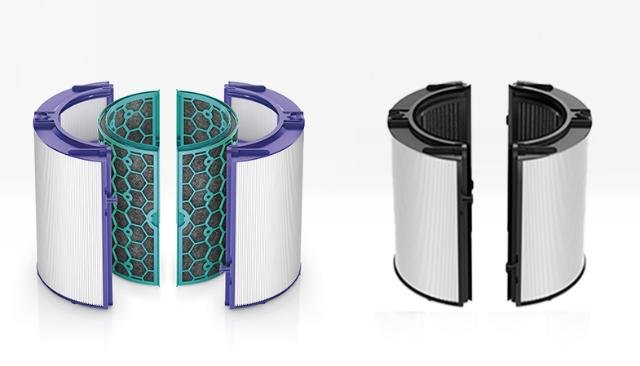
The Impact of Indoor Air Quality on Health
Indoor air quality plays a significant role in our overall health and well-being. Poor indoor air quality can lead to a variety of health concerns, ranging from common symptoms like headaches, itchy eyes, and sneezing to more severe long-term impacts.
Common Symptoms
When we breathe in polluted indoor air, it can irritate our respiratory system and cause a range of symptoms. Some of the most common symptoms of poor indoor air quality include:
- Headaches
- Itchy eyes
- Sneezing
- Coughing
- Fatigue
- Dizziness
- Shortness of breath
These symptoms can be particularly problematic for people with pre-existing health conditions like asthma or allergies.
Long-term Impacts
Long-term exposure to poor indoor air quality can have more severe health consequences. Chronic exposure to indoor air pollutants can increase the risk of developing respiratory diseases, heart disease, and even cancer. Children, the elderly, and people with pre-existing health conditions are particularly vulnerable to the long-term impacts of poor indoor air quality.
To minimize the risk of health concerns associated with poor indoor air quality, it is important to take steps to improve the air quality in our homes and workplaces. Regularly changing air filters, using air purifiers, and maintaining proper ventilation can all help to improve indoor air quality and reduce the risk of health problems.
In conclusion, indoor air quality plays a crucial role in our overall health and well-being. Poor indoor air quality can lead to a range of health concerns, from common symptoms like headaches and itchy eyes to more severe long-term impacts. By taking steps to improve indoor air quality, we can reduce the risk of health problems and enjoy a healthier, happier life.
Proper Maintenance and Cleaning of Air Filters
Maintaining and cleaning air filters is crucial to ensure healthy indoor air quality and prevent illnesses caused by poor air circulation. Here are some tips for proper maintenance and cleaning of air filters:
- Check the air filter every month. A dirty filter reduces airflow, making the HVAC system work harder and increasing energy costs.
- Replace the air filter at least every three months, or more frequently if you have pets, allergies, or live in a dusty environment.
- Use the right size and type of air filter for your HVAC system. Refer to the manufacturer’s instructions or consult an HVAC professional for guidance.
- Consider upgrading to a high-efficiency air filter, such as a HEPA filter, to capture more airborne particles and improve indoor air quality.
- Clean reusable air filters according to the manufacturer’s instructions or consult an HVAC professional. Do not wash or vacuum disposable air filters, as it can damage the filter and release trapped particles into the air.
- Schedule regular maintenance with an HVAC professional to inspect and clean the HVAC system, including the air filter. A professional can also identify and fix any issues that may affect the lifespan of the air filter and the HVAC system.
By following these tips, we can ensure that our air filters are properly maintained and cleaned, resulting in better indoor air quality and a healthier living environment.
Conclusion
In conclusion, it is clear that not changing your air filter can have serious consequences for your health. Immediate problems caused by an unchanged air filter can include itchy eyes or throat, headaches, and more. If you continue with that same air filter and the problems persist, the long-term impacts could be even more serious, such as respiratory diseases, heart disease, or cancer.
Furthermore, a clogged air filter can cause your HVAC system to overwork and eventually break down, leading to costly repairs or replacements. Additionally, ignoring air filter maintenance can result in higher energy costs and diminished indoor air quality.
To avoid these issues, we recommend changing your air filter regularly, at least every three months or more frequently if you have pets or allergies. It’s also important to choose the right type of air filter for your HVAC system and to follow the manufacturer’s recommendations for maintenance.
Overall, taking care of your air filter is a simple and important step in maintaining a healthy and comfortable home. By staying on top of air filter maintenance, you can avoid potential health risks, save money on energy costs, and prolong the life of your HVAC system.
